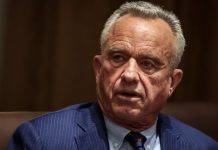Nov. 4 (UPI) — The World Health Organization said it has granted approval for India‘s COVAXIN COVID-19 vaccine for emergency use, creating a pathway for it to be shipped to member states.
The WHO announced the two-dose vaccine’s emergency use listing Wednesday, stating it is a prerequisite for the drug to be available to its COVAX initiative to provide equitable access to vaccines to fight the virus.
“This emergency use listing expands the availability of vaccines, the most effective medical tools we have to end the pandemic,” Dr. Mariangela Simao, WHO assistant-director general for Access to Medicines and Health Products, said in a statement. “But we must keep up the pressure to meet the needs of all populations, giving priority to the at-risk groups who are still waiting for their first dose, before we can start declaring victory.”
The vaccine, developed by Bharat Biotech, was found to have a 78% efficacy rate, the WHO said, adding its two doses are to be administered four weeks apart.
COVAXIN is the eighth vaccine to receive such approval from the international health body, which said the purpose of emergency use listing is to “make medicines, vaccines and diagnostics available as rapidly as possible to address the emergency while adhering to stringent criteria of safety, efficacy and quality.”
The WHO said the vaccine is “extremely suitable” for low- and middle-income countries due to its easy storage requirements.
According to a tweet from Bharat Biotech, its vaccine has a shelf life of 12 months from the date of manufacture.
“The Emergency Use Listing approval by WHO validates the international safety and quality standards of COVAXIN,” the company said. “Bharat Biotech is motivated to mitigate the worldwide pandemic.”
Under the COVAX initiative, more than 435 million COVID-19 vaccines have been shipped to 144 participating nations.
However, according to Oxford University’s Our World In Data project, the world’s poorest countries are still trailing well behind richer countries in their vaccination drives as only 3.9% of people in low-income nations have received at least one shot.
Late last month, WHO Director-General Tedros Adhanom Ghebreyesus called on the Group of 20 rich nations to make vaccines available to migrants, refugees and other displaced people.
“It is a stark reality that some of the world’s poorest countries shoulder the greatest responsibility for supporting displaced people and other people on the move,” Tedros wrote in the letter with Filippo Grandi, U.N. high commissioner for refugees, and Antonio Vitorino, the director general at the International Organization for Migration. “They need a reliable and adequate supply of vaccines and other critical supplies to stabilize their fragile and over-burdened health systems.”






